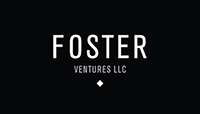If you are an independent contractor or run your own business, there are a few basic things to know when it comes to your federal tax return. Here are six tips you should know about income from self-employment:
- Self-employment income can include income you received for part-time work. This is in addition to income from your regular job.
- You must file a Schedule C, Profit or Loss from Business, or Schedule C-EZ, Net Profit from Business, with your Form 1040.
- You may have to pay self-employment tax as well as income tax if you made a profit. Self-employment tax includes Social Security and Medicare taxes. Use Schedule SE, Self-Employment Tax, to figure the tax. Make sure to file the schedule with your tax return.
- You may need to make estimated tax payments. People typically make these payments on income that is not subject to withholding. You may be charged a penalty if you do not pay enough taxes throughout the year.
- You can deduct some expenses you paid to run your trade or business. You can deduct most business expenses in full, but some must be ’capitalized.’ This means you can deduct a portion of the expense each year over a period of years.
- You can deduct business costs only if they are both ordinary and necessary. An ordinary expense is one that is common and accepted in your industry. A necessary expense is one that is helpful and proper for your trade or business.

Follow us